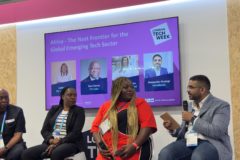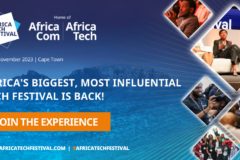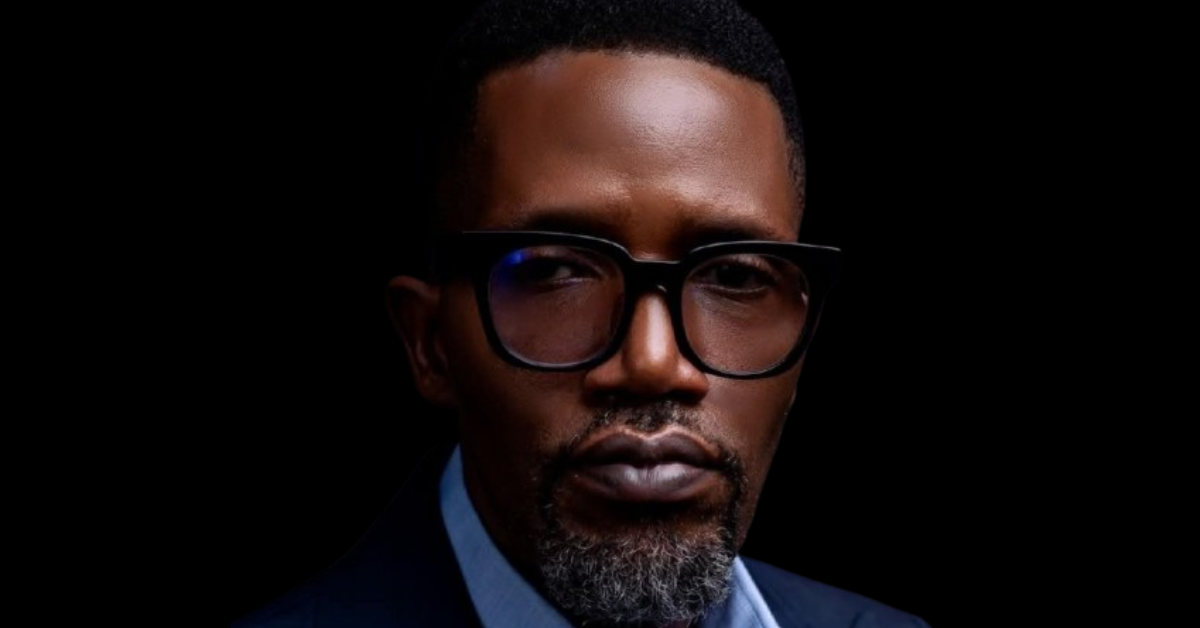Judith Okonkwo describes herself as a ‘technology evangelist’ with a career that has cut across banking, talent development and advisory for startups and SMEs. In 2016, she founded Ìmísí 3D, an extended reality (XR) creation lab on a mission to drive XR adoption in Nigeria and Africa. Okonkwo’s company runs an XR lab in Lagos, Nigeria, where visitors can drop by and learn about the tech and potential of XR.
In this episode of My Life in Tech, she tells me about Ìmísí 3D’s core interest in technology education and about her childhood interest that has led her to build a startup for XR adoption in Africa.
This interview has been edited for length and clarity.
First, is the name Ìmísí an Igbo phrase for “inside the head”?
No. It means inspiration. It’s Yoruba, not Igbo.
Really!
It means inspiring difference and change, and this new reality. But then, going a step further, it really is about making the change actionable and real.
Interesting. So, how did you get interested in extended reality?
I was always super interested in three things: technology, the future, and people. When I was a child, one of my favourite toys was the View-Master. It looks like binoculars, and you can click through these holographic images in it. It’s kind of like a virtual reality (VR) headset.
I was super pumped when Oculus was acquired by Facebook in 2014; that was a big deal in the space. And then, of course, Google Cardboard came out as well, and all of a sudden, people could start to imagine what was possible. A lot of people say that that is not really VR, but it is like an entry point into it.
I remember I was just waiting for the Samsung Gear VR to come out—it had been announced—and I got the first one. Once I tried it out, there was no going back.
What exactly does Ìmísí 3D do? What are you about?
To answer that question, one of the things that will be useful is to tell you the three categories of effort in what we do.
The first is that we have a mission to evangelise. We want to make sure everyday people know what the technologies are—you know what AR and VR and mixed reality are; you don’t think it’s something over there, you don’t think it’s alien. We have a lab, and it is open-access. You can walk in, try stuff out, and ask questions.
The second core purpose for us is: we believe that if we’re ever going to realise the potential of these technologies, then we have to build them ourselves; we have to be the creators. We invest heavily in trying to support a creator community across the African continent. We do meetups, and run events, masterclasses and hackathons all across Africa. We have opened labs in several states across Nigeria. Back in the day, we used to offer scholarships for VR nanodegrees. We do whatever we think can help people start building community. Our third category of effort is that we invest in initiatives in sectors we think have the greatest potential for significant impact. For us, that’s doing work in areas like education, healthcare, storytelling, and digital conservation.
We have spent 18 months working on an Africa XR report and are trying to get it out into the world.
Tell me about the AR/VR Hackathon you’re running in partnership with Meta.
The AR/VR Hackathon is our thing. We’ve been running this hackathon for years. We ran our first hackathon in 2016. By 2018, we had taken the AR/VR Africa hackathon to seven African countries. In 2020, we planned to do it physically in 10 countries, but then the pandemic happened and everything went haywire. So we made it a hybrid event in which 28 countries took part. We got volunteers from around the world to run workshops and masterclasses and offer mentorship sessions; we had about 120 of those sessions. We had a two-and-a-half-month boot camp the next year (because the hackathon started in December the previous year), which ended in a demo day.
So this year, with Meta’s focus on the metaverse, there’s definitely a lot more interest from their teams on the continent to do stuff related to this and they approached us to ask, “What can we do?” They were interested in doing something similar. In the past, other Facebook teams—not this particular one we’re working with this year—have supported our hackathons. So, this year’s AR/VR Africa Hackathon is still our event, but this time, we are working more closely with Meta to make it happen.
The hackathon is happening in 16 countries from mid-August this year to April 2023. Will that be simultaneous?
The physical in-person hackathon will happen during the first weekend in December, and that will be simultaneous across the 16 countries. For people who are not in those 16 countries, they will be able to hack virtually, and they will be able to do that at the end of November. By the end of the year, we’ll announce all of the winners, and then the first place teams from each country will go on to participate in the boot camp.
So what has your funding journey been like?
What do they say here in Nigeria—“hot tears”? What would be ideal for folks doing what we do is to have someone say, “Here is a bunch of money for you to run your thing or ecosystem development initiatives for X amount of time.” But what we’ve had is doing events and getting sponsorship for them. In between, we hope for the best!
Is this because XR is not an in-demand solution; that it is rather niche?
The problem is that people are not able to develop skills in this field the way that they should. One should be able to wake up and say, “I’m going to this institute or school where I can learn XR, where there’s a fully functioning lab.” But there’s nowhere you can get that in Nigeria—never mind the equipment.
And you should know that none of the big tech companies sell their XR hardware in Africa, which is ridiculously expensive and challenging for us. You pay almost double the RRP to get your hands on a Meta Quest. Microsoft has a mixed reality engineering team in Lagos, but its HoloLenses are not here.
What inspires you?
I really believe that if this work isn’t done, it will be catastrophic for the continent and the world. I keep thinking that when these technologies become pervasive in 100 years and come to define almost every aspect of human interaction, what will people [who haven’t prepared for this] do then? And, for me, the answer to that is terrifying.
The other part of it is: there are some challenges on the continent that I don’t think we will ever solve conventionally. For a sector like education, even if Nigeria was to allocate its entire budget for next year to education, it still wouldn’t be possible, that we could snap our fingers and suddenly there would be enough schools built, or enough qualified teachers. If we’re going to have these infrastructures succeed, we will have to leverage technologies like this to improve education, and things like that.
My Life in Tech (MLIT) is a biweekly column that profiles innovators, leaders, and shapers in the African tech ecosystem, with the intention of putting a human face to the startups and innovations they build. A new episode drops every other Wednesday at 3 PM (WAT). If you think your story will interest MLIT readers, please fill out this form.




















